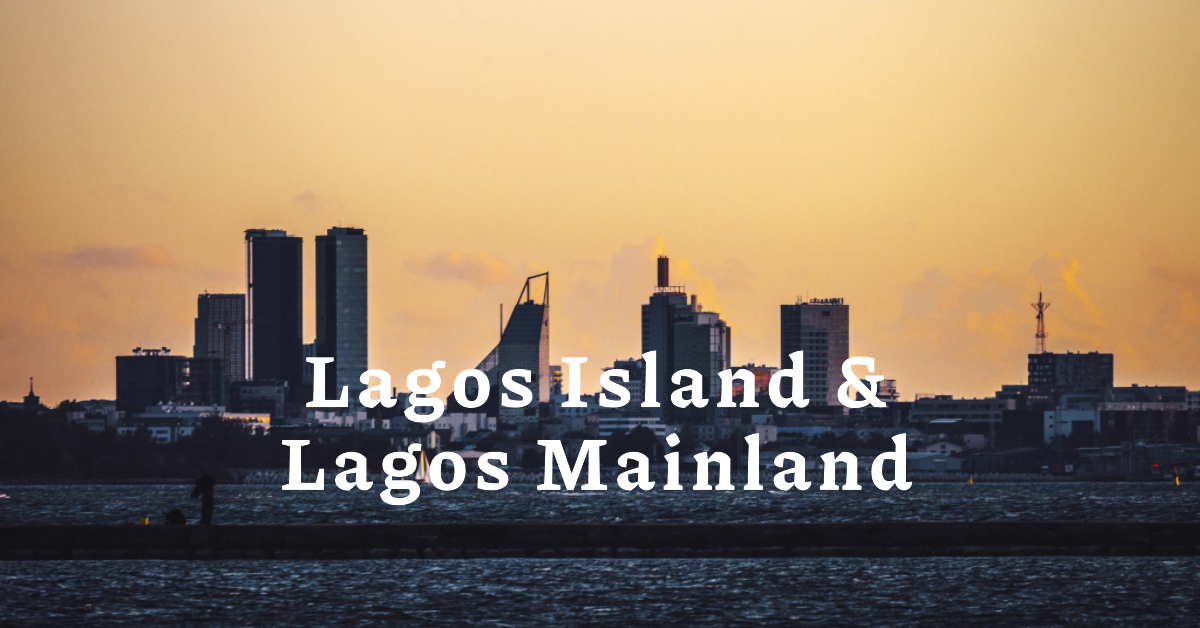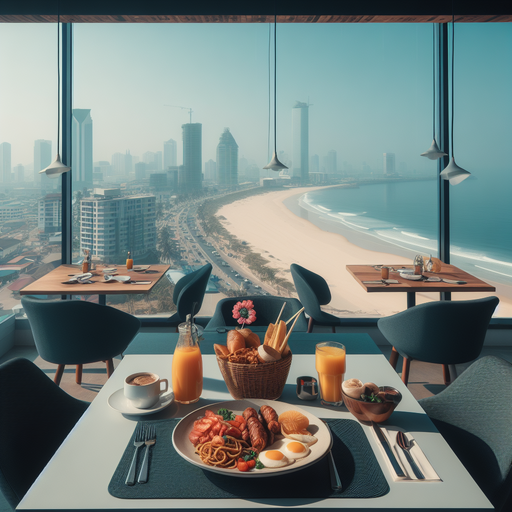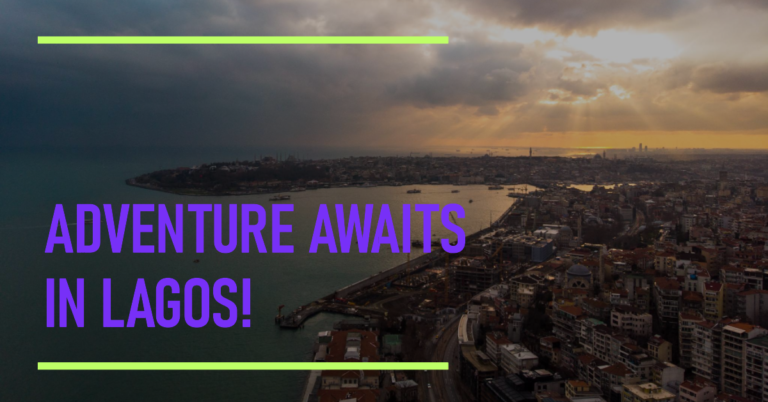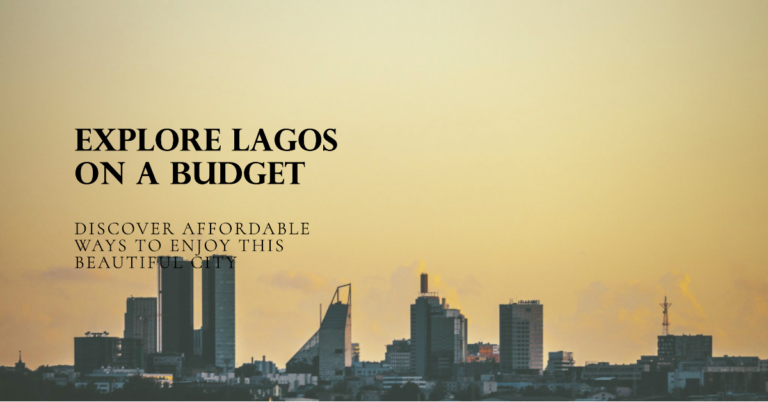Exploring Lagos: A Comprehensive Guide to Lagos Island and Lagos Mainland
Lagos, the largest city in Nigeria, is divided into two main areas: Lagos Island and Lagos Mainland. Lagos Island is the historical center of the city and is known for its bustling markets, historic sites, and vibrant nightlife. On the other hand, Lagos Mainland is a thriving residential and commercial area with a diverse range of neighborhoods and attractions. Understanding the distinct characteristics of these two areas is essential for anyone looking to explore the rich culture and dynamic lifestyle of Lagos.
The Geography of Lagos
Lagos, the largest city in Nigeria, is divided into two main areas: Lagos Island and Lagos Mainland.
Lagos Island
Lagos Island is the heart of the city, surrounded by bodies of water, including the Lagos Lagoon and the Atlantic Ocean. The island is known for its bustling commercial and financial districts, as well as its historical landmarks. It is characterized by a mix of modern skyscrapers and colonial-era architecture, showcasing the city’s rich history and rapid development.
 Photo by MJosefa López Torrecillas
Photo by MJosefa López Torrecillas
Lagos Mainland
Lagos Mainland, on the other hand, is a sprawling area that accommodates a significant portion of the city’s population. It is a hub of residential neighborhoods, diverse commercial activities, and cultural attractions. The mainland also houses industrial zones, educational institutions, and entertainment centers, contributing to the city’s dynamic atmosphere.
 Photo by anna-m. w.
Photo by anna-m. w.
Historical Significance
Lagos, Nigeria, has a rich historical significance that has shaped its present landscape. The foundation and growth of Lagos Island, along with its expansion to the mainland, are pivotal to understanding the city’s historical evolution.
The Foundation and Growth of Lagos Island
Lagos Island holds the distinction of being the birthplace of modern-day Lagos. It was originally inhabited by the Awori Yoruba people, and its early history was marked by trade and commerce. The island was an important center for the transatlantic slave trade during the 19th century, leading to the influx of various cultures and the establishment of a diverse population. This history of trade and cultural exchange has left a lasting impact on the island, influencing its architecture, cuisine, and traditions.
 Photo by arnaud audoin
Photo by arnaud audoin
The Expansion to the Mainland
The expansion of Lagos to the mainland occurred as a result of urbanization and the need for more space due to the growing population. This expansion led to the development of what is now known as Lagos Mainland. The city’s expansion beyond the confines of the island facilitated the integration of diverse communities and further propelled Lagos into becoming a major economic and cultural hub.
This expansion brought about the development of infrastructure, including roads, residential areas, and commercial districts, contributing to the transformation of Lagos into a sprawling metropolis. The link between Lagos Island and the Mainland forms the foundation of the city’s historical and cultural identity, illustrating the resilience and adaptability of its inhabitants throughout history.
In summary, the historical significance of Lagos Island and its expansion to the mainland is emblematic of the city’s journey from a trading post to a bustling urban center, reflecting the mosaic of cultures, traditions, and stories that continue to define Lagos today.
Economic Dynamics
Lagos, Nigeria, is a city of stark contrasts between Lagos Island and Lagos Mainland. The economic dynamics in each area play a crucial role in shaping the city’s overall prosperity. Here’s a look at the contrasting economic activities that define business and trade on Lagos Island and the industrial and residential life on the Mainland.
Business and Trade on Lagos Island
Lagos Island is the heartbeat of commerce in Lagos. The island is home to the city’s financial district, where towering skyscrapers overlook frenetic trading floors. The area is a melting pot of cultures and economic activities. From the bustling markets in Balogun and Idumota to the opulent boutiques in Victoria Island, Lagos Island serves as the epicenter of business and trade in the city. The lively street markets, where traders display an array of goods, reflect the vibrant entrepreneurial spirit of the area. The Island’s strategic location has attracted multinational corporations, leading to a robust and diverse business environment.
 Photo by Pixabay
Photo by Pixabay
Industrial and Residential Life on the Mainland
Conversely, the Mainland is the industrial powerhouse of Lagos. The area is marked by a mix of residential neighborhoods and industrial zones. Residents coexist with factories, warehouses, and workshops, creating a unique blend of industrial and residential life. The Mainland hosts a diverse range of industries, including manufacturing, logistics, and technology. The hum of industrial activity permeates the air, defining the Mainland’s character. The residential communities are a testament to the resilience of the people, thriving amidst the industrial landscape, creating a distinct sense of unity and vibrancy.
 Photo by Ksenia Chernaya
Photo by Ksenia Chernaya
Infrastructure and Transport
Transport infrastructure plays a crucial role in the connectivity and development of Lagos Island and Lagos Mainland. Ensuring efficient movement of people, goods, and services between the two regions is essential for sustained growth and prosperity.
Connecting the Island and Mainland
The Third Mainland Bridge, a vital link between Lagos Island and Lagos Mainland, stands as one of the longest bridges in Africa, facilitating the movement of thousands of vehicles daily. Its significance in connecting the two areas underscores the importance of solid infrastructure in enhancing accessibility and promoting economic activity.
Public Amenities and Services
Efficient public transportation is fundamental to the smooth functioning of any urban area. Lagos has made strides in this respect, with the Bus Rapid Transit (BRT) system offering a reliable and cost-effective mode of commuting between the Island and Mainland. Moreover, the ongoing development of the Lagos Rail Mass Transit (LRMT) network is poised to further improve inter-regional connectivity and reduce traffic congestion.
 Photo by Ahmed ツ
Photo by Ahmed ツ
Tourist Attractions
Lagos, Nigeria, is a vibrant city boasting a rich tapestry of tourist attractions, from historical landmarks on Lagos Island to parks and recreational spots on the mainland.
Historical Landmarks on Lagos Island
Lagos Island is steeped in history and dotted with iconic landmarks. One of the must-visit sites is the Murud-Janjira Fort, a centuries-old fortress located on the Arabian Sea. This historical gem offers visitors a captivating glimpse into the region’s storied past and the opportunity to marvel at its architectural grandeur. The fort sits majestically on an islet, surrounded by the azure waters of the sea, making it a truly enchanting sight to behold.
 Photo by Adinath Gilande
Photo by Adinath Gilande
Parks and Recreation on the Mainland
Lagos Mainland offers an abundance of green spaces and recreational areas, providing an urban oasis for locals and tourists alike. One standout destination is the serene waterfront park featuring stunning views of the city skyline and the peaceful expanse of the body of water. Visitors can revel in leisurely strolls, engage in outdoor activities, or simply unwind amidst the tranquil natural scenery, offering a perfect escape from the hustle and bustle of city life.
 Photo by Joana Vittoria
Photo by Joana Vittoria
Cultural Landscape
Cultural landscape refers to the symbiosis of human activity and environment, encompassing the combined works of nature and humanity. In Lagos, both the Island and Mainland areas boast diverse cultural landscapes, each offering unique festivals, events, music, and entertainment.
Festivals and Events on Lagos Island
 Photo by Belle Co
Photo by Belle Co
Lagos Island is renowned for its vibrant festivals and events that showcase the rich cultural heritage of the region. The Eyo Festival, also known as the Adamu Orisa Play, is a colorful masquerade procession that takes place on the streets of Lagos Island. It is a captivating display of traditional Yoruba culture, featuring elegantly adorned Eyo masqueraders parading through the bustling thoroughfares.
Another prominent event is the Lagos International Jazz Festival, which attracts music enthusiasts from around the world. This multi-day celebration of jazz music features performances by acclaimed local and international artists, creating an electrifying atmosphere that resonates throughout Lagos Island.
Music and Entertainment on the Mainland
The Lagos Mainland pulsates with an eclectic music and entertainment scene, offering an array of venues where locals and visitors can immerse themselves in dynamic performances and lively gatherings. From the vibrant sounds of Afrobeat to the soul-stirring melodies of highlife music, the Mainland encapsulates the rhythmic heartbeat of Lagos.
 Photo by Magda Ehlers
Photo by Magda Ehlers
Numerous live music venues and entertainment hubs dot the Mainland landscape, providing a platform for emerging and established artists to captivate audiences with their musical prowess. Whether it’s a cozy jazz club or a bustling open-air concert, the Mainland resonates with the infectious energy of Nigeria’s music and entertainment scene.
Challenges Facing Lagos
Urbanization and Overcrowding Issues
Lagos, one of the largest and fastest-growing cities globally, faces significant challenges related to urbanization and overcrowding. The population explosion in Lagos has led to rampant urbanization, resulting in overcrowding issues that exert immense pressure on the city’s infrastructure and resources. Rapid migration from rural areas to the city has strained housing and increased the proliferation of informal settlements, ultimately contributing to overpopulation and congestion. This surge in population growth has presented substantial difficulties in managing essential services such as transportation, sanitation, and housing.

Photo by Christyn Reyes
Environmental Concerns and Initiatives
Lagos also grapples with environmental challenges stemming from rapid urbanization. The city faces escalating pollution, inadequate waste management, and dwindling green spaces, all of which pose significant threats to public health and ecological sustainability. Additionally, the encroachment on natural habitats and ecosystems has intensified environmental degradation. However, in response to these pressing concerns, numerous initiatives have been implemented to mitigate the environmental impact. These efforts encompass waste management programs, reforestation projects, and eco-friendly urban planning strategies aimed at preserving the city’s natural landscape and fostering a healthier environment for its residents.
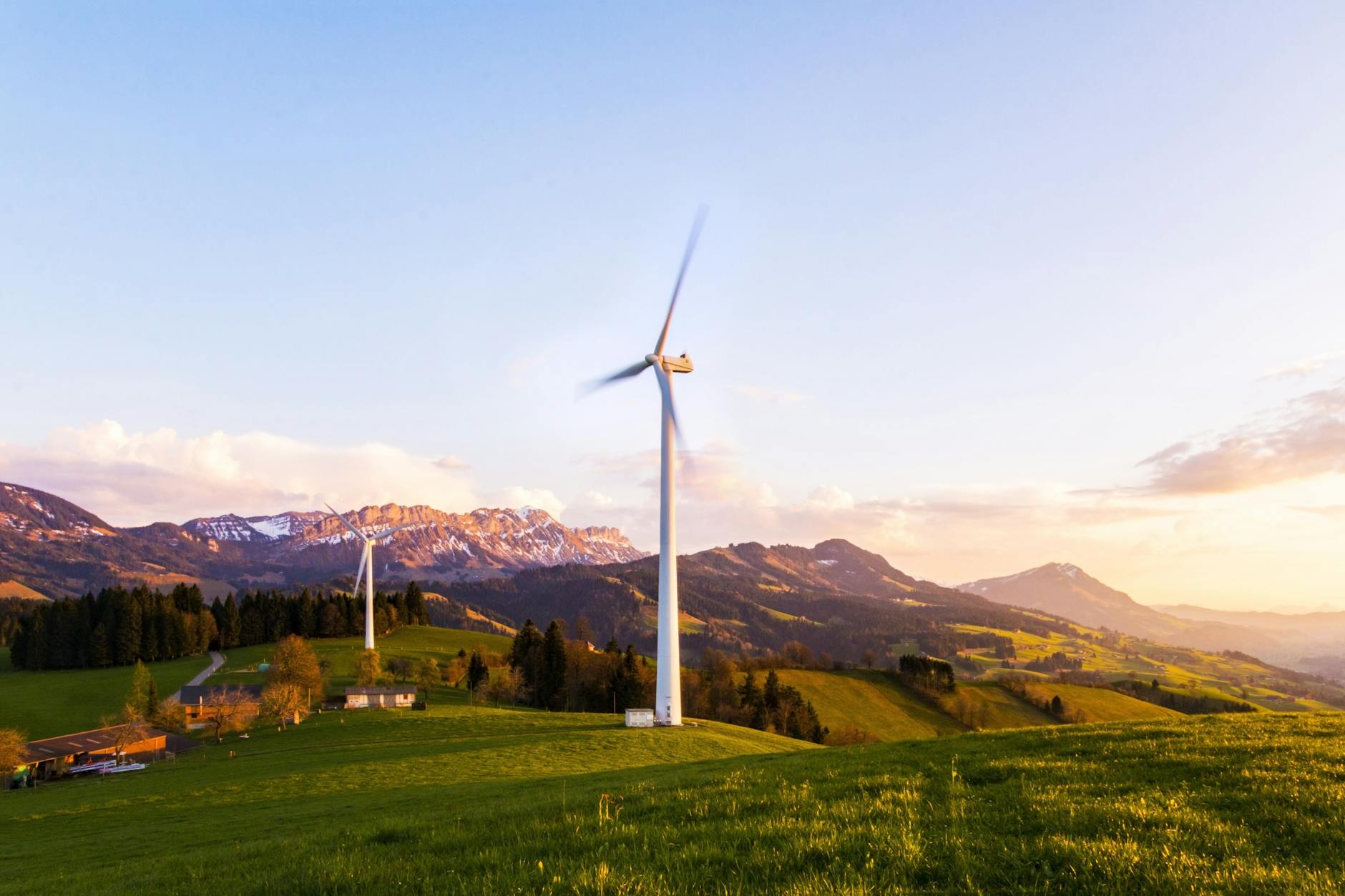
Photo by Pixabay
Conclusion
In conclusion, Lagos Island and Lagos Mainland are two distinct areas within the city of Lagos, each with its own unique characteristics and attractions. Lagos Island is known for its historical landmarks such as Tinubu Square and the National Arts Theatre, while Lagos Mainland is a bustling hub of commerce and residential areas. Both areas offer a rich cultural experience and a vibrant atmosphere, making Lagos a dynamic and diverse city worth exploring. Whether you’re interested in history, business, or entertainment, Lagos has something to offer for everyone.

